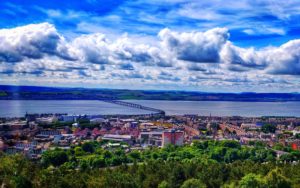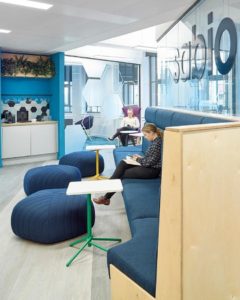Challenges
Our discussion for the day focused on the key challenges we all face with environmentally sustainable workplace practices and how we might overcome these. While each industry, sector, business and organisational action group will have its own unique set of challenges, there are common themes that resonated throughout the discussion. Take supply chain and cost for instance. How do we ensure we’re partnering with the right suppliers and then communicating cost appropriately? Everything comes at a cost, sustainable materials no exception, and having the right conversations early on can help ensure everyone is on the same page from the beginning.
Other common challenges centred on the changing landscape and how we’re moving forward in the post-Covid world, especially when dealing with so many old, inefficient buildings. What do we do with these workplaces as people have returned to offices at different capacities than before, and organisations are looking to downsize space or refurbish these workplaces to bring them in line with sustainability and net zero carbon targets?
The most thoroughly discussed challenges on the day were company policies and initiatives and recruitment, specifically, ensuring people are entering industries with the right skill sets. These were key issues, as they seem to sit at the root of the problem. Everyone(company) is at different stages in their sustainability journey, so naturally they will have varying degrees of policies and environmentally sustainable workplace practices. If we’re all working towards making Dundee the greenest city, how can we unite in this goal and align expectations so we’re achieving the same target? In the same vein, what can be done to help in the war on talent? Job seekers are looking for companies with concrete sustainable and ethical policies in place. Furthermore, recruiting people with the right education and skill sets to move us forward in this goal is crucial, but if these paths aren’t being encouraged at the right stages, then we’re missing a huge (and vital) piece of the puzzle.
Solutions
A widely mentioned theme was partnership working and communication. As one member said, “communication is always the key to any success.” We can be sharing best practice; sharing environmental action plans; sharing problems, events, opportunities; working together within the city to see what resources or burdens we can share. We need to overcome the fear of talking about our sustainability and net zero carbon targets and getting judged for not doing enough. Equally, we need to distribute the knowledge. If a company is doing ‘less than’ you, help them achieve more. For success, we need to be on this journey together.
Education is a key factor as well, and this is twofold. In the first instance, it’s about educating within a company to truly grasp and understand sustainability, even going so far as to hire consultants or building up people from within to be sustainability champions. In the latter it’s about ensuring opportunities are available through education (at school and university level), training, and apprenticeships.
These opportunities need to start young, with training courses available in schools and in the right geographical locations. Having training courses in a few select cities or areas makes it hard to get people interested as they can be put off by travel costs, relocation, etc. Better access to training and apprenticeships will help drive sustainability and the race to net zero, as newer technologies are going to require specialised skill sets. Apprenticeships need to be built by the right people so the skills that are needed are actually getting taught and there needs to be support for schools to be encouraging these as a legitimate career pathway.
Some of the other solutions the group discussed were things like reducing carbon miles and thinking about sourcing closer to home. Using local suppliers starts to make an impact and supporting small businesses can really make a difference when these businesses grow but decide to stay local or stay in Scotland. Another suggestion was thinking about how we can work together in our respective fields to offset some of these issues from the start. One example was for architects and M&E engineers to be on the same page with a project from the beginning, working together to find the best solution for a building, using technology in the right manner, and realising there’s not a one size fits all answer.




